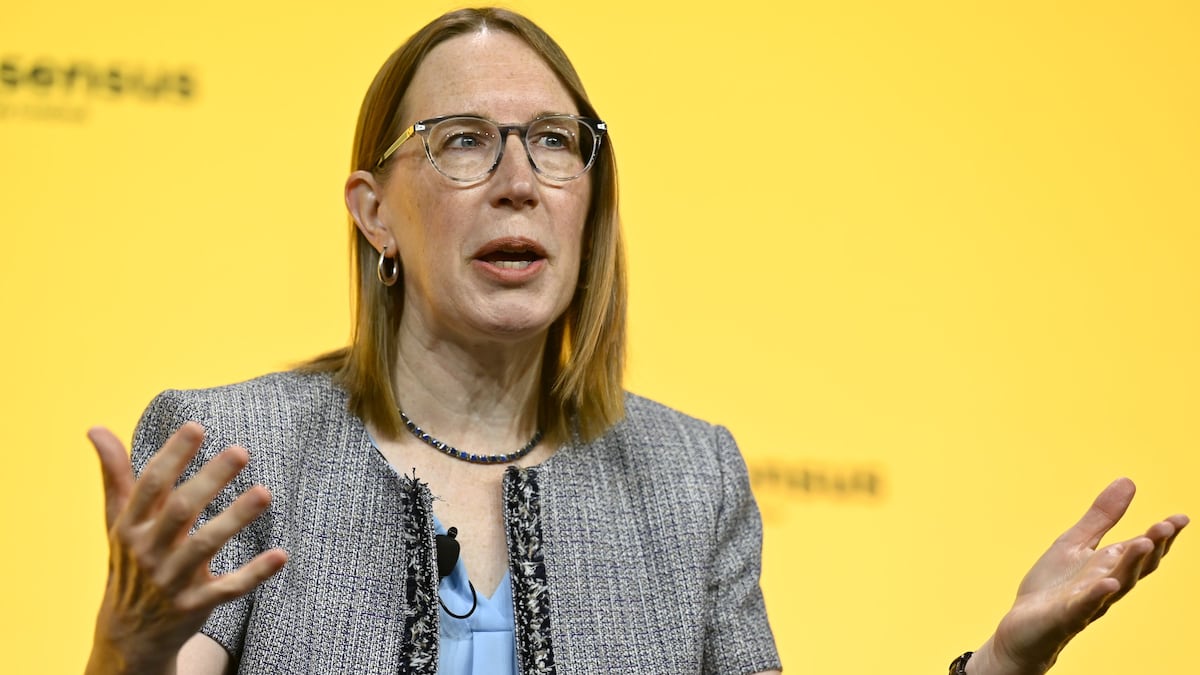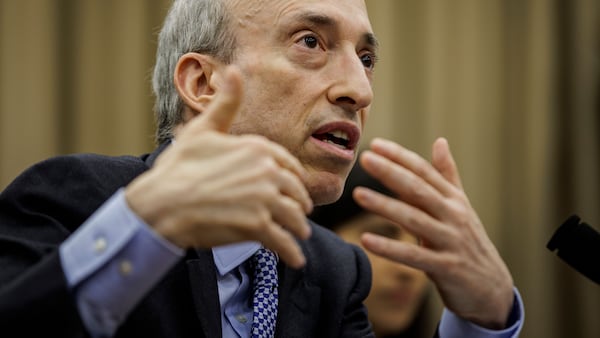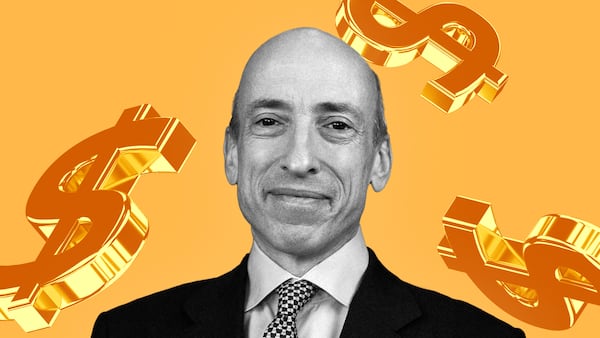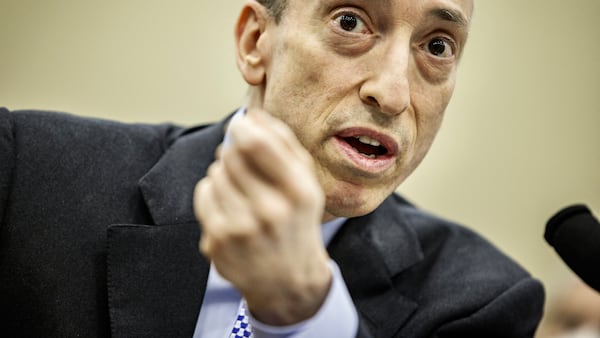- The outspoken crypto supporter spoke about her career at the SEC.
- She discussed elections, ‘frustration’ in some SEC cases, and Stoner Cats.
Securities and Exchange Commissioner Hester Peirce is happy to talk crypto innovation.
Just don’t call her crypto mom.
Peirce has earned the affection of the crypto industry — and the sobriquet “crypto mom” — for her support of the industry and blistering dissents from rule proposals and lawsuits levelled at the industry under chair Gary Gensler.
Still, libertarian-leaning Peirce says she approaches crypto as a choice that American consumers should be able to make for themselves.
“I think it’s funny, but at the same time, I do take a little bit of an issue with the term ‘mom’,” the commissioner told DL News in an interview last week.
“I’m not your mom.”
DL News spoke to Peirce about the SEC’s crypto crackdown, crypto exchange-traded funds, and the upcoming election.
A new chair
Some have suggested that Peirce — one of two Republican commissioners at the SEC — could be its next chair if Donald Trump is elected president in November.
That would be a boon to the crypto industry, for whom Gensler has become an iconic enemy.
Gensler’s term runs until 2026, but SEC chairs tend to step down early if a new administration comes in.
“If the president changes, typically the chairman of the SEC will also change in response to that,” Peirce said.
The position is a powerful one.
The chair sets the agency’s agenda, and does so independently of the executive branch — not necessarily the case for all federal regulators.
Asked about succession at the SEC, however, Peirce wouldn’t make predictions.
“It could really be anyone — the president has wide latitude” to choose, she said.
Crypto laws
Some politicians are convinced that crypto voters could swing battleground states in November elections.
By the same token, lawmakers have realised they need to move quickly to pass crypto legislation.
The FIT21 Act — which creates a market structure for crypto — passed out of the House of Representatives in May.
The bill would give the SEC’s sister agency, the Commodity Futures Exchange Commission, more authority over spot crypto markets.
Gensler and his CFTC counterpart Rostin Behnam work closely together. But they clearly disagree over one issue — while Gensler says most crypto are securities, Behnam claims them as commodities.
The SEC and CFTC ‘need to step back and remember that we both serve the American people.’
— Hester Peirce
Peirce said she doesn’t think of the SEC’s relationship with the CFTC as a rivalry, and she was happy to see Congress working on deciding where to allocate authority.
“We need to step back and remember that we both serve the American people, and the American markets. We should be thinking about who is better to do function x or y — as Congress has directed us,” she said.
Legislation of this industry must take into account that potential innovation has nothing to do with crypto’s status as a financial asset, she said.
“There’s a lot going on in crypto that has nothing to do with the financial markets at all,” Peirce said.
Decentralised physical infrastructure, for instance, doesn’t fit neatly into a financial legal framework.
Regs by enforcement
Crypto lobbyists say they want regulation because in its absence, the SEC must turn to enforcement.
The Supreme Court recently gave crypto litigants hope.
In a historic overturning of the so-called Chevron doctrine, the court essentially made it easier for judges to overrule the opinion of regulators in cases where statutes are unclear.
Peirce said the agency was “still processing” what impact the ruling could have on its cases.
She said, however, that she has always focused on following Congress’s intentions.
“We have to hew closely to what Congress told us to do,” she said.
The SEC must ensure that it’s sticking to the authority Congress gave it and not “trying to adopt interpretations that are overly aggressive.”
Peirce didn’t comment on open cases — the agency is currently suing exchanges Coinbase, Binance, and Kraken, among others.
But she said the SEC’s court victory against blockchain publishing company LBRY was a low point of her career as commissioner.
“That was a project where really substantial work had been done, and we nevertheless decided to litigate and ended up basically shutting it down,” she said.
The SEC alleged that LBRY had violated securities laws.
“There were no allegations of fraud — it was a registration violation — and that seemed to me problematic,” Peirce said.
A lawsuit against non-fungible token project Stoner Cats, which the parties settled, seemed arbitrary, Peirce said.
“If we had applied similar logic in other contexts, we could be bringing cases against all kinds of non-digital collectible issuers,” she said.
In contrast to Gensler, who has an oft-repeated maxim that crypto businesses just need to “come into the SEC and register,” Peirce said it’s difficult for crypto businesses to access help from the regulator.
“There’s a real hunger for generalised guidance, and we could have put it out and helped both of these projects, as well as many others,” she said.
ETF approvals
Investors are anxiously waiting for the SEC to approve Ethereum ETFs, which Gensler has said would likely come this summer.
Peirce would not be drawn on whether the SEC will approve applications for Solana ETFs.
But she said crypto ETFs should be treated the same way.
“That was my great frustration with the Bitcoin ETF saga. We went 10 years back and forth” with issuers, she said until a court ruled essentially that the SEC had to allow ETFs.
“We just needed to apply the same rules as we apply for other things, and look at the facts and circumstances of each application.”
She warned, however, that a green light from the SEC isn’t an endorsement of the product as safe.
“Investors have different risk tolerances, different things they’re looking for, different portfolios. Their time horizons are different,” she said.
After all, she’s no one’s mom — she’s not telling anyone how to invest.
“You, as an individual, can make choices for you and your family better than anyone else, because you know your circumstances best, you know your dreams best,” she said.
“Too often, we as regulators jump in and say, I’m going to tell you what to do with your life.”
Reach out to the author at joanna@dlnews.com.







